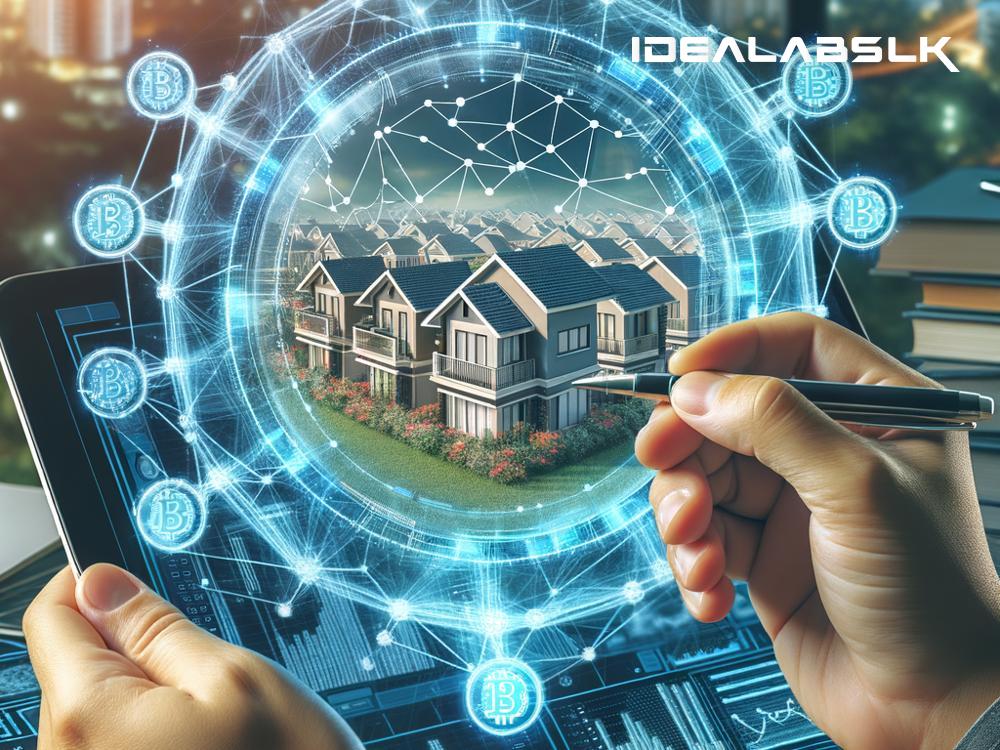Unlocking Security: How Blockchain Revolutionizes Real Estate Customer Data Protection
In the world of real estate, where transactions involve significant monetary movements and highly personal details, the importance of securing customer data cannot be overstated. Here, blockchain technology emerges as a game-changer, offering robust solutions to numerous security challenges. This article digs into the foundational aspects of blockchain and its transformative potential in enhancing real estate customer data security, explained in a way everyone can grasp.
Understanding Blockchain in Simple Terms
Before we plunge into the specifics, let's understand what blockchain is. Imagine it as a digital ledger or a record book that's not held by one person or entity but distributed across multiple computers worldwide. Each "page" or block in this ledger contains a list of transactions. Every time a new transaction occurs, a new block is added to this chain of blocks, hence the name blockchain.
What makes blockchain standout? Three key features: decentralized structure, transparency, and immutability. Decentralized means no single entity controls the data, making it less susceptible to hacking or manipulation. Transparency ensures that participants can view transaction histories, fostering trust. Immutability means once something is recorded, it can't be altered, ensuring data integrity.
The Real Estate Realm: A Ripe Ground for Security Enhancements
The real estate sector is traditionally seen as a fortress of valuable but vulnerable information, from personal identifiers to financial records. Historically, this industry has relied on paper trails and centralized databases, which, while functional, are prone to breaches, fraud, and data manipulation. The advent of blockchain technology presents an opportunity to shore up these vulnerabilities significantly.
How Blockchain Transforms Real Estate Customer Data Security
1. Enhanced Security
At its core, blockchain's decentralized nature inherently bolsters security. Since the data is spread across a network of computers, hacking into the system becomes a Herculean task for cybercriminals. Even if they manage to breach one block, altering the entire chain is virtually impossible due to the cryptographic linkage between blocks. This dispersion of data inherently protects personal and financial information of real estate customers.
2. Data Integrity and Trust
Blockchain's immutability ensures that once a transaction is recorded, it cannot be edited or deleted. This trait instills a high level of data integrity, offering customers and businesses alike the confidence that their records remain untampered. In real estate transactions, where the stakes are high, this trust is invaluable.
3. Smart Contracts
A revolutionary offshoot of blockchain is smart contracts - self-executing contracts with the terms of the agreement directly written into code. These digital contracts automate and enforce obligations without intermediaries, reducing the risk of manual errors or fraud. In real estate, smart contracts can securely handle agreements ranging from property sales to rental leases, ensuring transparent and undisputable transaction records.
4. Decentralized Identity Verification
Blockchain facilitates decentralized identity verification, allowing individuals to prove who they are without exposing sensitive data. Through cryptography, blockchain can authenticate participants in a transaction without revealing personal information, mitigating the risk of identity theft—a common concern in real estate dealings.
5. Streamlined Transactions
Beyond security, blockchain streamlines real estate transactions, which typically involve a labyrinth of checks and balances. By providing a transparent, immutable ledger, blockchain reduces the need for multiple intermediaries, making transactions faster, cheaper, and more secure. This efficiency not only benefits the customers but also real estate businesses by cutting down administrative costs and complexities.
The Road Ahead
The potential of blockchain in revolutionizing real estate customer data security is immense, but it's not without challenges. For widespread adoption, issues such as regulatory acceptance, technological infrastructure, and public awareness must be addressed. Nonetheless, the benefits of integrating blockchain into real estate processes are compelling.
As we look towards the future, the intersection of blockchain and real estate holds the promise of a more secure, transparent, and efficient marketplace. By protecting customer data more reliably and simplifying transactions, blockchain technology is poised to reshape the real estate landscape, making it safer and more accessible for everyone involved.
In essence, blockchain is not just a buzzword; it's a technological beacon for the real estate industry, lighting the way towards enhanced customer data security and trust. As the adoption of blockchain accelerates, it heralds a new era of security and efficiency in real estate, ensuring that customer data remains as secure as the homes they aspire to own.

